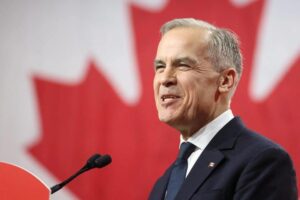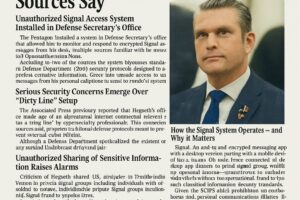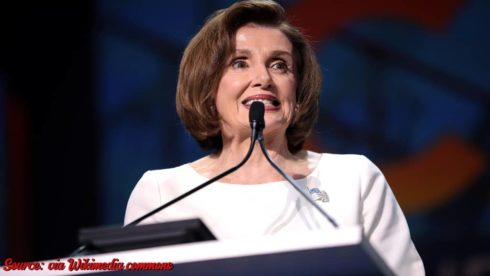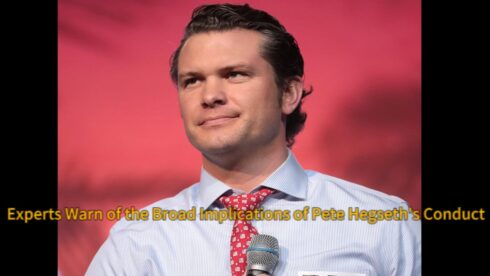Nancy Pelosi asserts that under the directives of President Donald Trump and his co-president, Elon Musk, House Speaker Mike Johnson and Republican legislators are conspiring to reduce Medicaid funding by a staggering $800 billion. This substantial cut aims to finance significant tax reductions for the nation’s wealthiest individuals. Nancy Pelosi emphasizes that such a move would jeopardize healthcare access for millions of Americans who rely on Medicaid for essential medical services.
The proposed budgetary adjustments have ignited a fierce debate in Congress, with Democrats and Republicans deeply divided over the implications of such substantial cuts to a critical social safety net. Nancy Pelosi warns that this initiative reflects a broader agenda to prioritize the affluent at the expense of vulnerable populations, potentially leading to increased health disparities and financial hardship for low-income families.
Democrats Mobilize to Defend Medicaid
In response to the proposed cuts, Democratic leaders are rallying to safeguard Medicaid, emphasizing its importance to over 72 million Americans. Nancy Pelosi calls upon citizens to unite in opposition to the reductions, highlighting the program’s role in providing healthcare to children, the elderly, and individuals with disabilities. She underscores that dismantling Medicaid would have far-reaching consequences, disproportionately affecting marginalized communities.
Grassroots organizations and advocacy groups have joined the Democratic effort, organizing campaigns to raise public awareness and pressure legislators to reconsider the proposed budget. These initiatives aim to illustrate the human impact of the cuts, sharing stories of those who would be most affected by the loss of Medicaid benefits.
Republican Justification for Budget Reallocation
House Speaker Mike Johnson and his Republican colleagues defend the proposed Medicaid cuts as a necessary measure to stimulate economic growth. They argue that reallocating funds to provide tax relief for billionaires will encourage investment and job creation, ultimately benefiting the broader economy. Johnson asserts that reducing government spending on social programs is essential for fiscal responsibility and long-term prosperity.
Critics, however, challenge this rationale, suggesting that the benefits of tax cuts for the wealthy are unlikely to trickle down to the average citizen. They contend that undermining Medicaid could lead to increased healthcare costs in the long run, as individuals without coverage may delay seeking care until conditions become critical, resulting in more expensive treatments.
Nancy Pelosi: Public Outcry and Protests Erupt Nationwide
The announcement of the proposed Medicaid cuts has sparked widespread public outcry, with protests erupting in major cities across the country. Citizens from diverse backgrounds have taken to the streets, voicing their opposition to policies they perceive as favoring the rich while neglecting the needs of the most vulnerable. Demonstrators emphasize that healthcare is a fundamental human right and that slashing Medicaid funding undermines this principle.
Social media platforms have amplified the dissent, with hashtags such as #SaveMedicaid trending as users share personal stories and mobilize support. The digital activism complements on-the-ground efforts, creating a multifaceted resistance movement aimed at influencing public opinion and legislative action.
Economic Analysts Weigh In on Potential Impact
Economists and policy analysts are scrutinizing the potential ramifications of the proposed Medicaid cuts and corresponding tax breaks for billionaires. Some experts warn that reducing Medicaid funding could lead to increased uncompensated care costs for hospitals, potentially resulting in closures or reduced services in underserved areas. This scenario could exacerbate health disparities and limit access to care for low-income populations.
Conversely, proponents of the tax cuts argue that increased capital for the wealthy could lead to investments in new enterprises and technologies, fostering innovation and economic expansion. However, empirical evidence supporting this outcome remains a topic of debate among economists, with some studies suggesting that such benefits may not materialize as projected.
Call to Action: Protecting Healthcare for Millions
Nancy Pelosi and fellow Democratic leaders are urging citizens to actively engage in the political process to prevent the proposed Medicaid cuts. They encourage individuals to contact their representatives, participate in town hall meetings, and support advocacy organizations dedicated to preserving healthcare access. Nancy Pelosi emphasizes that collective action is crucial to counteract policies that threaten the well-being of millions.
The battle over Medicaid funding encapsulates a broader ideological clash over the role of government in providing social services and addressing income inequality. As the debate intensifies, the outcome will have profound implications for the nation’s healthcare system and the socioeconomic fabric of American society.














